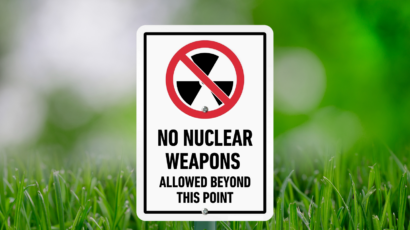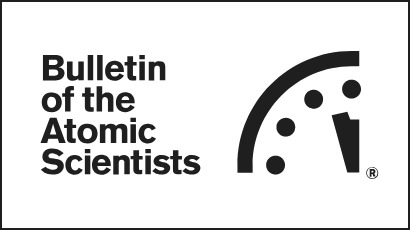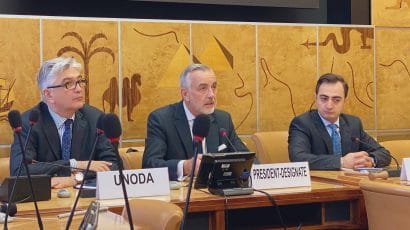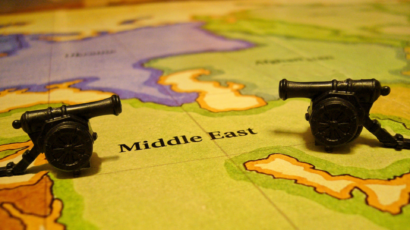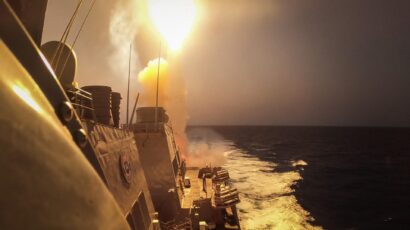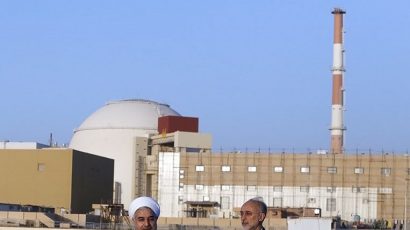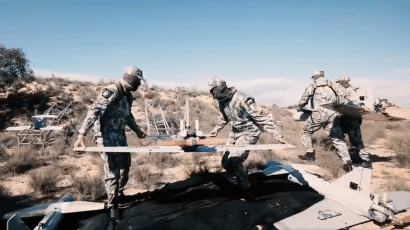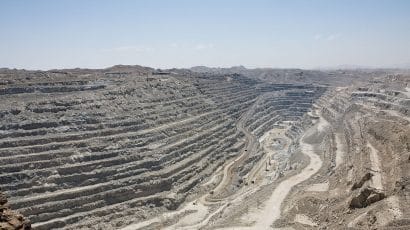Search results for
The struggle for a nuclear-weapon-free zone in Central Asia
When Kazakhstan's Parliament ratified a treaty establishing a nuclear-weapon-free zone in Central Asia earlier this month, the effort to ban nuclear weapons from the region took its final step. Throughout the Cold War, Central Asia had been the epicenter of the Soviet nuclear testing program--with the Soviet military conducting 456 nuclear tests in Kazakhstan alone. Appropriately then, the treaty was signed by representatives from Kazakhstan, Kyrgyzstan, Tajikistan, Turkmenistan, and Uzbekistan in September 2006 at Semipalatinsk, the main Soviet test site in Kazakhstan.
Can we remain food secure amid climate change?
As we work to arrest global warming, we must also mitigate the food security problems it will cause.
COVID-19 has given the 2020 NPT Review Conference a reprieve. Let’s take advantage of it
NPT parties have a chance to achieve more than what appeared possible if the conference had gone ahead as planned. Here’s how to make the most of the extra time.
The divided front negotiating with Iran
They may say they’re united, but the members of the P5+1 have divergent interests
International roundtable series launches on nuclear disarmament and economic development
Today on its website, the Bulletin of the Atomic Scientists launches a new monthly Nuclear Disarmament and Economic Development Roundtable series in which experts from emerging and developing countries debate crucial, timely topics in nuclear energy, nuclear proliferation, and economic development.
Five minutes is too close
A careful review of threats leads the Bulletin's Science and Security Board to conclude that the risk of civilization-threatening technological catastrophe remains high, and that the hands of the Doomsday Clock should therefore remain at five minutes to midnight.
Revitalizing high-level nonproliferation and disarmament talks
Unproductive blame shifting has dominated the nuclear debate in recent years, frustrating progress and serving only the interests of those who are content to see no movement on nonproliferation and disarmament. Rekindling a spirit of common purpose on the nuclear agenda is an urgent task.
Despite the post-Cold War decline in public attention, the consequences of nuclear weapons proliferation and an indifferent international performance on nuclear disarmament remain potentially catastrophic.
Wargame simulated a conflict between Israel and Iran: It quickly went nuclear
A wargame reveals how Israel and Iran could quickly consider using nuclear weapons if ever drawn into a direct conflict.
Houthi attacks from Yemen show need for controls on advanced missile technology proliferation
Yemen's Houthis have exploited a trade loophole to build the missiles now threatening the Red Sea. Other groups could follow.
Should nuclear power be expanded significantly into developing countries?
As demand for energy rises in the developing world, nuclear power could provide one partial solution to the global climate crisis. Large countries such as Russia and China are both investing in nuclear power and positioning themselves to export technology and expertise. But whether developing countries should incorporate nuclear energy depends on a range of factors such as local energy demand and the availability of other energy sources. They should also consider how competitive nuclear energy would be. Most important, countries that go nuclear should have sufficient technological, industrial, and political stability.
Don’t panic if the Iran nuclear negotiations fail
Why a Middle Eastern proliferation nightmare scenario is just that—a bad dream.
Establishing the next president’s national security agenda: Part I
With the presidential primaries ending this week, it's time to focus on the general election and the key national security challenges that the next president will face. Over the next three columns, I will outline what national security issues I think the candidates should be debating.
A brief history of climate change and conflict
In recent years, many foreign affairs experts have attempted to demonstrate the linkages between climate change and the social tensions that can lead to conflict. While critics may believe this is simply a fad in international affairs, history suggests otherwise. Over the last few millennia, climate change has been a factor in conflict and social collapse around the world. The changing climate has influenced how and where people migrate, affected group power relations, and provided new resources to societies while taking away others.
Decoding the US “secret authorizations” to sell nuclear technology to Saudi Arabia
The Part 810 agreement is a good first step toward making American nuclear energy export more attractive to a foreign buyer like Saudi Arabia, but it must be kept in mind that this is all a first step. Part 810 authorizations do not allow any technology transfer, and therefore, a 123 agreement would have to be signed before any possible nuclear projects could start.
Drones add little to rocket-filled Israel-Palestine skies, but represent growing global threat
Beneath the collision of Israel’s missile defense systems and Palestinian-built rockets, Hamas has begun using so-called “kamikaze drones” to try penetrating Israeli defenses another way.
Contending with the new “radioactive patriotism”
A few weeks ago, it seemed as if the nuclear arms control and nonproliferation communities had any number of new reasons for optimism. April brought the New START treaty, the Nuclear Posture Review, and the 47-nation Nuclear Security Summit in Washington, D.C. The 2010 Nuclear Non-Proliferation Treaty (NPT) Review Conference concluded in May with a hard-won consensus. Finally, in early June, the U.N.
2012: An elemental force: Uranium production in Africa, and what it means to be nuclear
What exactly is a nuclear state? Does a uranium enrichment program suffice to make one of Iran, or are atomic bomb tests the deciding factor? Such ambiguities cannot be dismissed as doublespeak. The nuclear status of uranium is an important aspect of these ambiguities. When does uranium count as a nuclear substance? And what does Africa have to do with it? Such issues lie at the heart of today’s global nuclear order. Or disorder, as the case may be.
Promoting nuclear security in the Middle East
Initiatives led by experts from the nuclear power industry and academia, rather than state leaders, can help secure nuclear facilities and material in the Middle East—especially Iran and Turkey.
Bad chemistry: ISIS and mustard agents
Chemical warfare is still alive and well in Syria and Iraq, because of an enduring belief among regional actors that chemical weapons will get the job done.
